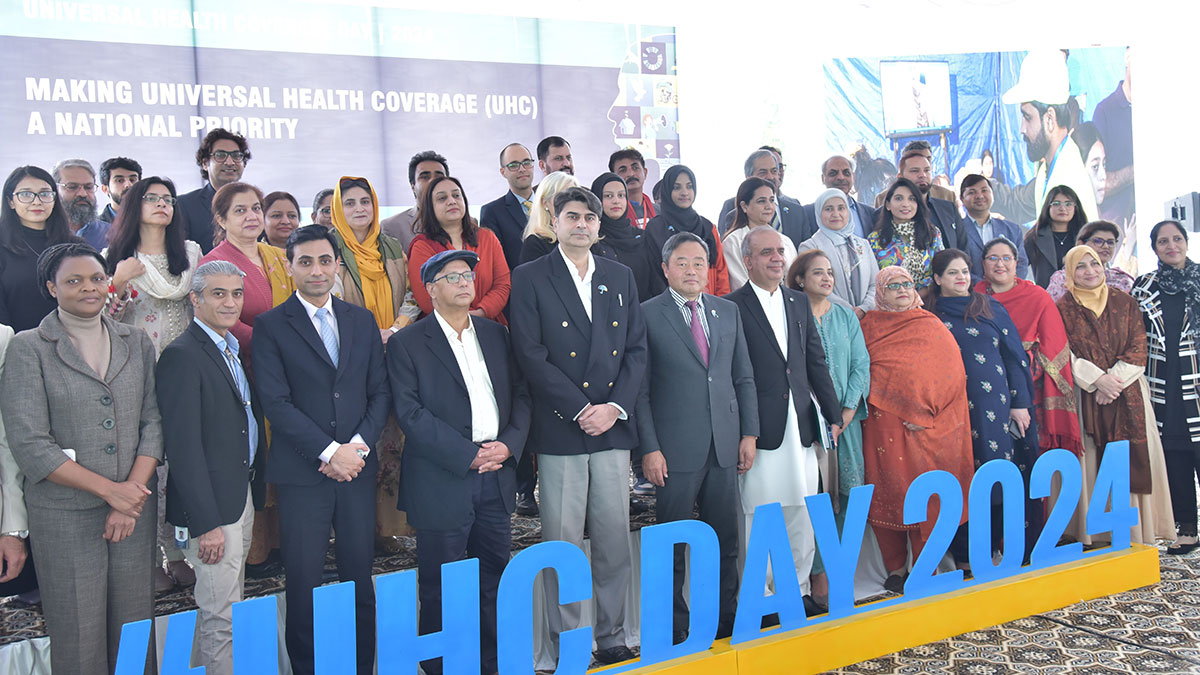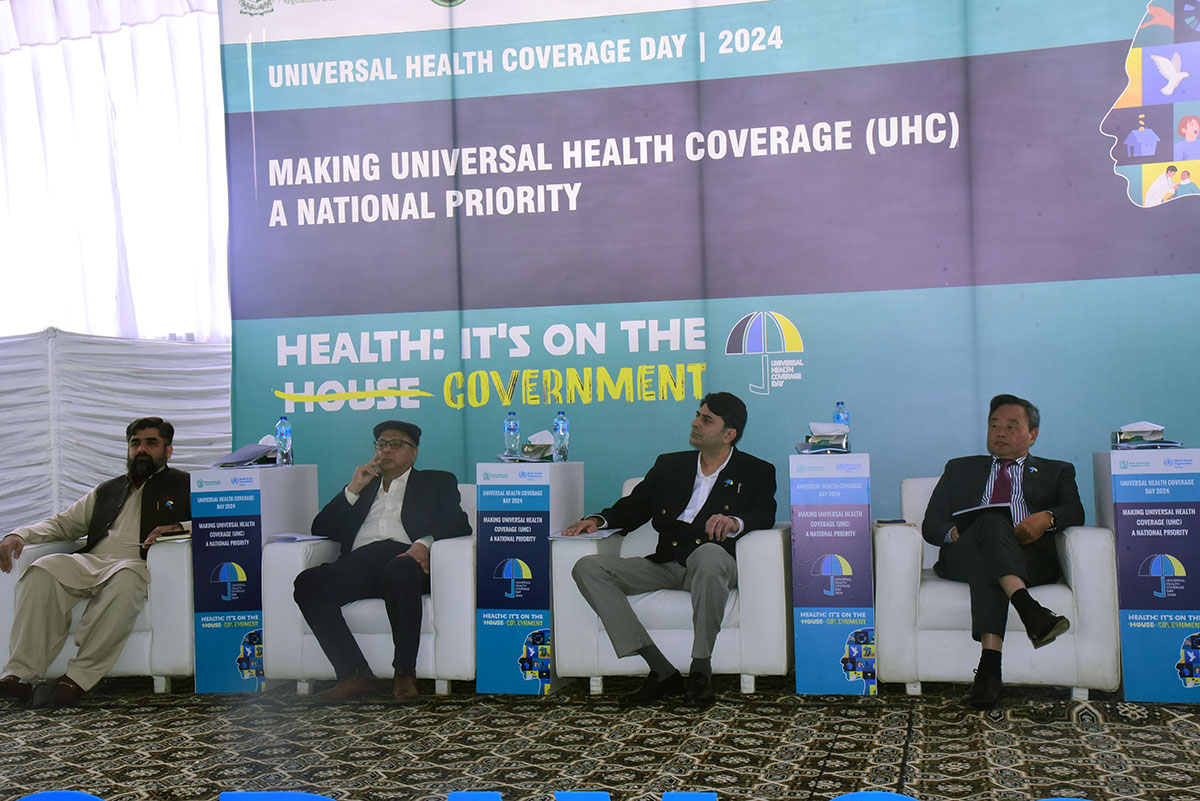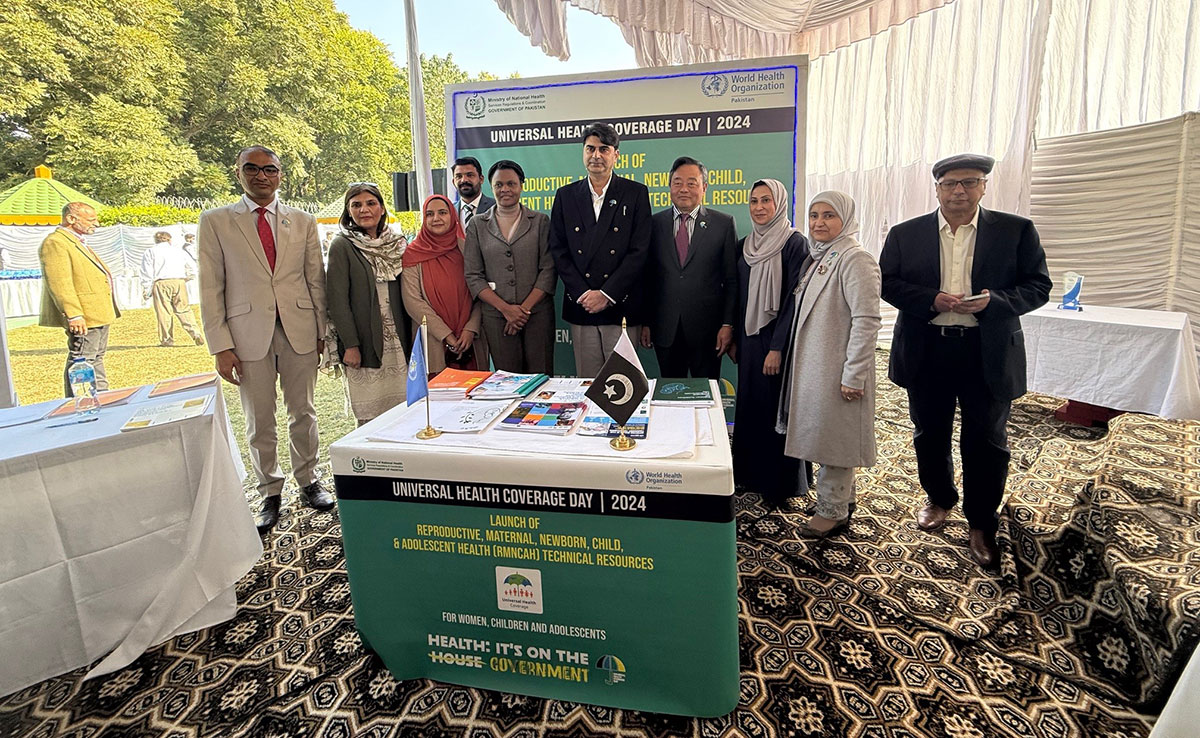
8 December 2024, Islamabad, Pakistan – Ahead of International Universal Health Coverage Day, celebrated annually on 12 December, World Health Organization (WHO) Representative in Pakistan Dr Dapeng Luo urged stakeholders and donors to strengthen their support for the Government of Pakistan as it seeks to expand universal health coverage (UHC), particularly for the most vulnerable populations.
On 3 December, WHO hosted a dialogue bringing together Coordinator to the Prime Minister on Health Dr Malik Mukhtar Ahmad Bharath, representatives from national authorities including the Ministry of Planning, Development and Special Initiatives, the Benazir Income Support Programme and the Sehat Sahulat Programme, as well as national and international partners.
As participants marked Universal Health Coverage Day under this year’s theme "Health: It's on the Government", Dr Luo highlighted that advancing universal health coverage “is crucial to advance the 2030 Agenda”.
“To achieve sustainable development we need healthy populations, healthy mothers and newborns, healthy workers, healthy families and healthy communities.”
Dr Luo underlined that Pakistan has achieved “notable milestones”, including improving its UHC Index from 40 in 2015 to 52.7 in 2022, according to the country UHC Monitoring Report 2023. However, he also noted that “half the population still lacks access to basic health services” and that “achieving the target index of 65 by 2030, while still short of the global benchmark of 80, will require sustained efforts and innovative strategies”.
During the event, attention was drawn to other milestones along the way to achieving universal health coverage. The Sehat Sahulat Programme (SSP), for instance, now provides coverage to over 190 million Pakistanis – who before 2016 did not have such protection – in Azad Jammu and Kashmir, Gilgit-Baltistan, Islamabad, Punjab, Balochistan, Khyber Pakhtunkhwa and the Tharparkar district of Sindh. When the programme was launched in 2016, it targeted those living below the poverty line, expanding between 2020–2021 to include universal health coverage. The services provided, however, remain limited: according to the latest available data, at least 47% of Pakistan's population faces out-of-pocket healthcare expenditures, leading to widespread financial hardship.

Participants in the dialogue agreed on the urgency of “making universal health coverage a national priority” and ensure sustainable coverage that is 1) accessible and timely for all, no matter who they are or in which province they live; 2) equitable and affordable for everyone, without posing a financial hardship for families; and 3) reliable and of good quality.
The discussions also underlined the importance of reinforcing prevention through primary health care.
The dialogue provided an opportunity for international partners – including the International Labour Organization, the World Bank and the German Agency for International Cooperation (GIZ) – to renew their collective commitment to support Pakistan’s authorities advance universal health coverage.
Launch of national guidelines to reinforce maternal, newborn, child and adolescent health

As part of the commemoration of International Universal Health Coverage Day, WHO Pakistan and the Ministry of National Health Services, Regulations and Coordination launched jointly a comprehensive package of national guidelines and training programmes to bolster reproductive, maternal, newborn, child and adolescent health across the country.
In Pakistan, around 4 million pregnant women and newborns receive health care services from the public and private sectors each year.
“Improving the lives of these mothers and newborns is essential to ensure good health for all. No real sustainable development can be achieved without healthy mothers and newborns”, said WHO Representative in Pakistan Dr Dapeng Luo.
International Universal Health Coverage Day aims to raise awareness of the need for strong and resilient health systems, underlining that, for health systems to work, they must work for everyone, no matter who they are, where they live or how much money they have.
For additional information, please contact:
Maryam Yunus, National Professional Officer – Communications, WHO Pakistan,
José Ignacio Martín Galán, Head of Communications, WHO Pakistan,


